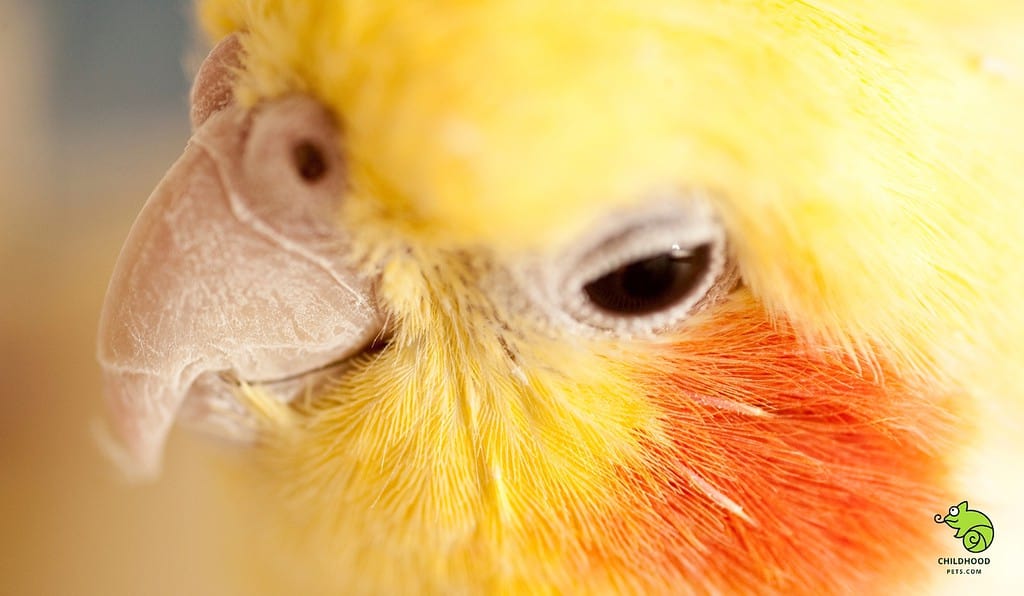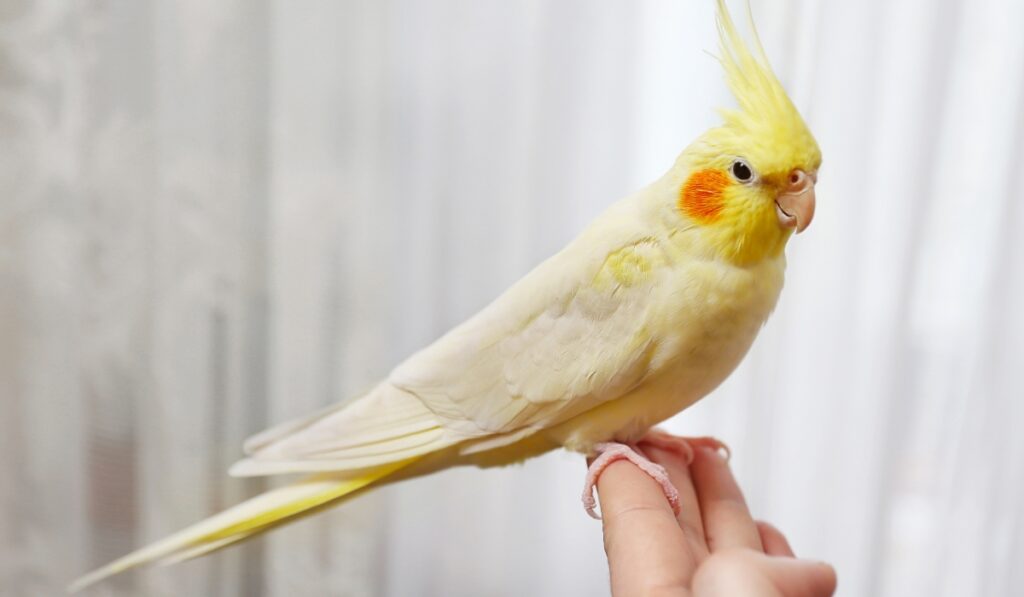
Cockatiels, with their vibrant crests and playful demeanor, have long been a favorite among bird enthusiasts. But beyond their charming appearance lies an astonishing cognitive ability that many are unaware of. These birds possess a memory power that rivals, and in some cases surpasses, that of many other avian species.
As a general rule, cockatiels have an impressive capacity for memory retention, allowing them to recognize faces, recall past experiences, and even learn new vocalizations throughout their lives. Their ability to form deep emotional bonds and navigate complex social dynamics is a testament to their remarkable cognitive prowess.
Let’s explore the mysteries of the cockatiel’s memory, explore their emotional depth. Join us on this enlightening journey and see cockatiels in a whole new light!
The Science Behind Cockatiel Memory
Cockatiels, like many other birds, have evolved to have sharp memories to better adapt to their environment. Their long-term memory plays a pivotal role in their daily interactions and survival.
- How cockatiels use their long-term memory to interact with their habitat: Cockatiels utilize their memory to navigate their surroundings, find food, and avoid predators. Their ability to recall flight pathways, recognize safe zones, and remember potential threats is crucial for their survival, both in the wild and in captivity.
- The role of memory in their social behavior: Social interactions are a significant part of a cockatiel’s life. They use their memory to differentiate between safe individuals and potential threats. This ability to distinguish friends from foes is vital for their well-being and ensures harmonious coexistence in flocks.
- Differentiating safe individuals and threats based on memory: Cockatiels can remember specific calls and songs associated with particular individuals. This auditory memory helps them communicate more effectively with their flock and recognize familiar birds and humans.
Main parts of a cockatiel’s brain involved in memory
- Hippocampus: Responsible for spatial memory and navigation.
- Cerebral Cortex: Plays a role in learning, attention, and memory.
- Amygdala: Involved in emotional memory and decision-making.
- Basal Ganglia: Assists in habit formation and procedural memory.
- Thalamus: Acts as a relay center, processing and transmitting sensory information.
Cockatiels and Their Remarkable Memory
Cockatiels are quick learners. They can be trained to talk like humans, mimicking words and even entire sentences. Their ability to memorize tricks and perform specific tasks is commendable. For instance, with consistent training, they can learn to fetch items, navigate mazes, and even solve puzzles. Such cognitive feats are a testament to their intelligence and memory capabilities.
One of the most heartwarming experiences I’ve had was witnessing a cockatiel’s reunion with its owner after a prolonged separation. The bird was able to recall its owner’s face and voice even after several months apart. This deep-seated memory allows them to form strong bonds with their human companions, making them one of the most affectionate pet birds you can have.
Lifelong Learning and Memory Retention
Cockatiels are lifelong learners. Their ability to pick up new vocalizations throughout their life is nothing short of impressive. This skill isn’t just for show; vocalization plays a crucial role in their social interactions, especially during the courtship and mating process. Mates recognize each other by their unique calls, and these vocal cues play a pivotal role in strengthening their bond.
Different Vocalizations Cockatiels Learn at Various Stages of Their Life:
| Age Stage | Vocalization Type | Purpose/Usage |
| Juvenile | Basic chirps | Communication with parents and siblings |
| Adolescence | Mimicry | Imitating surrounding sounds, including humans |
| Adulthood | Courtship songs | Attracting and bonding with a mate |
| Senior | Mixed | Combination of all learned vocalizations |
How Do Cockatiels Recognize and Remember Their Owners?

Cockatiels have an innate ability to form strong bonds with humans. This bond is not just based on the provision of food or shelter but is deeply rooted in their social nature. They thrive on interaction and companionship. Over time, they become attuned to the subtle cues of their owners, such as voice tone, facial expressions, and even body language. This recognition is not just a fleeting moment; it’s a memory that they retain.
The bond formation process between cockatiels and humans is genuinely fascinating. It begins with trust. As you spend time with your cockatiel, feeding it, talking to it, and playing with it, the bird starts to associate you with positive experiences. Over time, this association strengthens, and the cockatiel begins to recognize you as a trusted companion. This trust is evident when a cockatiel willingly perches on your shoulder or seeks your company.
Do Cockatiels Remember Each Other?
Cockatiels, being social birds, have intricate social dynamics. Their interactions with fellow cockatiels are based on recognition and memory. Here are some anecdotes and case studies that highlight their ability to remember each other:
- Sibling Recognition: In a controlled study, separated cockatiel siblings were reintroduced after several months. The birds displayed immediate recognition, often choosing to perch together and share food.
- Mated Pairs: Cockatiels form strong bonds with their mates. In instances where mated pairs were separated and later reunited, the birds showed clear signs of recognition, often resuming their previous bonding behaviors.
- Flock Dynamics: In the wild, cockatiels often fly in flocks. Even within these large groups, birds can recognize and differentiate between individual members, showcasing their impressive memory.
- Dispute Resolution: Cockatiels remember both positive and negative interactions. If two birds had a dispute, they would often avoid each other for a while, indicating a memory of the unfavorable event.
- Parent-Offspring Recognition: Even as fledglings grow and start to resemble adult birds, parent cockatiels can recognize and care for their offspring, distinguishing them from other young birds.
How Cockatiels Overcome Negative Memories
Just as humans can have traumatic experiences that leave lasting scars, cockatiels too can form negative associations or “bad memories.**” For instance, a negative experience at the vet might make them fearful of similar environments or situations. However, it’s essential to understand that while they might not recall the exact details of the event, they remember the associated fear or stress.
But there’s hope. With patience and positive reinforcement, you can help your cockatiel overcome these negative associations. By introducing positive experiences that counteract the negative ones, over time, the bird can learn to let go of its fear.
Common triggers for negative memories in cockatiels:
- Loud, sudden noises.
- Unfamiliar environments or changes in their habitat.
- Negative experiences with other animals or birds.
- Stressful situations like vet visits.
- Abrupt changes in their daily routine.
The Emotional Depth of Cockatiels
Cockatiels, like many of us, form deep emotional bonds with their partners. Their ability to form such bonds is a testament to their emotional depth and intelligence. When they lose a partner, their grief is palpable. They might call out for their lost partner, fly around in a desperate search, or even display signs of depression. This behavior isn’t just a fleeting moment of sadness; it’s a profound mourning process that can last for a considerable time. Some cockatiels, after losing a partner, never take another mate, choosing instead to live their lives in memory of the one they lost.
The lasting impact of their memories on their emotional well-being is evident in their behavior. A cockatiel’s memory isn’t just about recalling facts or events; it’s deeply intertwined with their emotions.
Signs that indicate a cockatiel is mourning:
- Reduced appetite or refusal to eat.
- Lack of interest in play or interaction.
- Frequent calling or searching behaviors.
- A noticeable decrease in vocalizations or singing.
- Displaying signs of lethargy or depression.
Importance of Memory for Wild Cockatiels
In the wild, a cockatiel’s memory is its most potent survival tool. Every day, they face challenges that test their memory and adaptability. For instance, during migration, they need to remember specific landmarks and routes to ensure they reach their destination safely. Their memory helps them recall which paths had abundant food sources and which ones had potential threats.
Another crucial aspect of their memory in the wild is their ability to remember the calls and songs of their flock. In vast landscapes, these calls help them locate their flock and ensure they stay with familiar birds, increasing their chances of survival.
Challenges wild cockatiels face that domesticated ones don’t and how memory aids them:
- Recalling specific migration routes year after year.
- Remembering the locations of safe roosting spots.
- Differentiating between the calls of their flock and other bird species.
- Recognizing the changing seasons and adapting their behavior accordingly.
Conclusion
The world of cockatiels is filled with wonder and intelligence. Their remarkable memory power, combined with their emotional depth, makes them one of the most intriguing pet birds. By understanding these birds, we realize that there’s so much more to them than meets the eye. Their ability to form bonds, learn continuously, and navigate the challenges of the wild using their memory is truly awe-inspiring.
If this article resonated with you or enlightened you in any way, please consider sharing it with fellow bird lovers. Together, let’s create a community where our feathered friends thrive! 🦜
Frequently Asked Questions
Do cockatiels remember their parents?
Yes, cockatiels have been observed recognizing their parents even after being separated for a while.
Can cockatiels remember faces?
Absolutely! Cockatiels can remember and recognize the faces of their owners and other familiar people.
How long can cockatiels remember?
While the exact duration can vary, cockatiels have shown the ability to recall information and recognize individuals even after several months of separation.
